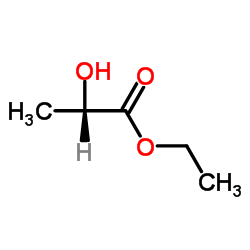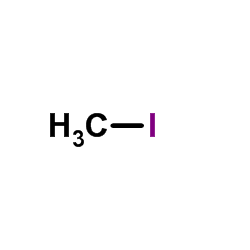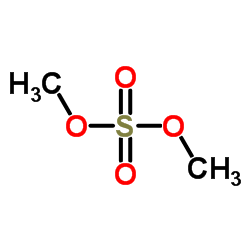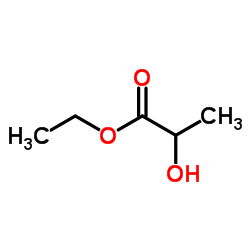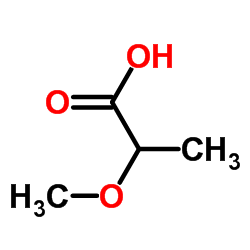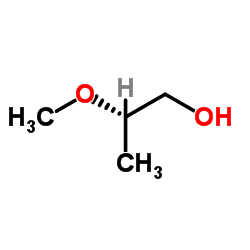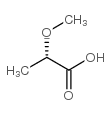41918-08-5
| Name | Ethyl (S)-(-)-2-methoxypropionate |
|---|---|
| Synonyms | Ethyl (2S)-2-methoxypropanoate |
| Density | 0.959g/cm3 |
|---|---|
| Boiling Point | 160ºC at 760 mmHg |
| Molecular Formula | C6H12O3 |
| Molecular Weight | 132.15800 |
| Flash Point | 49.9ºC |
| Exact Mass | 132.07900 |
| PSA | 35.53000 |
| LogP | 0.58440 |
| Appearance | Liquid | Clear colorless to slightly yellow |
| Index of Refraction | 1.398 |
Synonym:None Known Section 2 - COMPOSITION, INFORMATION ON INGREDIENTS
Risk Phrases: None Listed. Section 3 - HAZARDS IDENTIFICATION EMERGENCY OVERVIEW
The toxicological properties of this material have not been fully investigated. Potential Health Effects Eye: May cause eye irritation. Skin: May cause skin irritation. Ingestion: May cause irritation of the digestive tract. The toxicological properties of this substance have not been fully investigated. Inhalation: May cause respiratory tract irritation. The toxicological properties of this substance have not been fully investigated. Chronic: No information found. Section 4 - FIRST AID MEASURES Eyes: Flush eyes with plenty of water for at least 15 minutes, occasionally lifting the upper and lower eyelids. Get medical aid. Skin: Get medical aid. Flush skin with plenty of water for at least 15 minutes while removing contaminated clothing and shoes. Wash clothing before reuse. Ingestion: Never give anything by mouth to an unconscious person. Get medical aid. Do NOT induce vomiting. If conscious and alert, rinse mouth and drink 2-4 cupfuls of milk or water. Wash mouth out with water. Inhalation: Remove from exposure and move to fresh air immediately. If not breathing, give artificial respiration. If breathing is difficult, give oxygen. Get medical aid. Notes to Physician: Section 5 - FIRE FIGHTING MEASURES General Information: As in any fire, wear a self-contained breathing apparatus in pressure-demand, MSHA/NIOSH (approved or equivalent), and full protective gear. During a fire, irritating and highly toxic gases may be generated by thermal decomposition or combustion. Vapors may be heavier than air. They can spread along the ground and collect in low or confined areas. Runoff from fire control or dilution water may cause pollution. Extinguishing Media: Use extinguishing media most appropriate for the surrounding fire. Section 6 - ACCIDENTAL RELEASE MEASURES General Information: Use proper personal protective equipment as indicated in Section 8. Spills/Leaks: Absorb spill with inert material (e.g. vermiculite, sand or earth), then place in suitable container. Avoid runoff into storm sewers and ditches which lead to waterways. Clean up spills immediately, observing precautions in the Protective Equipment section. Provide ventilation. Section 7 - HANDLING and STORAGE Handling: Wash thoroughly after handling. Use with adequate ventilation. Avoid breathing dust, vapor, mist, or gas. Avoid contact with eyes, skin, and clothing. Keep container tightly closed. Avoid ingestion and inhalation. Storage: Store in a cool, dry place. Store in a tightly closed container. Section 8 - EXPOSURE CONTROLS, PERSONAL PROTECTION Engineering Controls: Facilities storing or utilizing this material should be equipped with an eyewash facility and a safety shower. Use adequate ventilation to keep airborne concentrations low. Exposure Limits CAS# 41918-08-5: Personal Protective Equipment Eyes: Wear appropriate protective eyeglasses or chemical safety goggles as described by OSHA's eye and face protection regulations in 29 CFR 1910.133 or European Standard EN166. Skin: Wear appropriate protective gloves to prevent skin exposure. Clothing: Wear appropriate protective clothing to prevent skin exposure. Respirators: Follow the OSHA respirator regulations found in 29 CFR 1910.134 or European Standard EN 149. Use a NIOSH/MSHA or European Standard EN 149 approved respirator if exposure limits are exceeded or if irritation or other symptoms are experienced. Section 9 - PHYSICAL AND CHEMICAL PROPERTIES Physical State: Liquid Color: Not available. Odor: Not available. pH: Not available. Vapor Pressure: Not available. Viscosity: Not available. Boiling Point: Not available. Freezing/Melting Point: Not available. Autoignition Temperature: Not available. Flash Point: > 110 deg C (> 230.00 deg F) Explosion Limits, lower: Not available. Explosion Limits, upper: Not available. Decomposition Temperature: Solubility in water: Specific Gravity/Density: Molecular Formula: C6H12O3 Molecular Weight: 132.16 Section 10 - STABILITY AND REACTIVITY Chemical Stability: Not currently available. Conditions to Avoid: No specific conditions to avoid noted. Incompatibilities with Other Materials: Oxidizing agents. Hazardous Decomposition Products: Carbon monoxide, carbon dioxide. Hazardous Polymerization: Has not been reported Section 11 - TOXICOLOGICAL INFORMATION RTECS#: CAS# 41918-08-5 unlisted. LD50/LC50: Not available. Carcinogenicity: Ethyl (S)-(-)-2-Methoxypropionate - Not listed by ACGIH, IARC, or NTP. Section 12 - ECOLOGICAL INFORMATION Section 13 - DISPOSAL CONSIDERATIONS Products which are considered hazardous for supply are classified as Special Waste and the disposal of such chemicals is covered by regulations which may vary according to location. Contact a specialist disposal company or the local waste regulator for advice. Empty containers must be decontaminated before returning for recycling. Section 14 - TRANSPORT INFORMATION IATA Not regulated as a hazardous material. IMO Not regulated as a hazardous material. RID/ADR Not regulated as a hazardous material. Section 15 - REGULATORY INFORMATION European/International Regulations European Labeling in Accordance with EC Directives Hazard Symbols: Not available. Risk Phrases: Safety Phrases: S 24/25 Avoid contact with skin and eyes. WGK (Water Danger/Protection) CAS# 41918-08-5: No information available. Canada None of the chemicals in this product are listed on the DSL/NDSL list. CAS# 41918-08-5 is not listed on Canada's Ingredient Disclosure List. US FEDERAL TSCA CAS# 41918-08-5 is not listed on the TSCA inventory. It is for research and development use only. SECTION 16 - ADDITIONAL INFORMATION N/A |
| Safety Phrases | S24/25 |
|---|---|
| HS Code | 2918990090 |
|
~93% 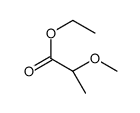
41918-08-5 |
| Literature: Barrett, Anthony G. M.; Braddock, D. Christopher; Christian, Paul W. N.; Pilipauskas, Daniel; White, Andrew J. P.; Williams, David J. Journal of Organic Chemistry, 1998 , vol. 63, # 17 p. 5818 - 5823 |
|
~48% 
41918-08-5 |
| Literature: Jamieson, Andrew G.; Sutherland, Andrew Organic and Biomolecular Chemistry, 2005 , vol. 3, # 5 p. 735 - 736 |
|
~% 
41918-08-5 |
| Literature: Weber; Kreuzig; Bahadir Chemosphere, 1997 , vol. 35, # 1-2 p. 13 - 20 |
|
~% 
41918-08-5 |
| Literature: Kobayashi, Kimiko; Kato, Takayuki; Unno, Masafumi; Masuda, Shinji Bulletin of the Chemical Society of Japan, 1997 , vol. 70, # 6 p. 1393 - 1401 |
|
~% 
41918-08-5 |
| Literature: Stevens; Deans Canadian Journal of Research, Section B: Chemical Sciences, 1939 , vol. 17, p. 290 |
|
~% 
41918-08-5 |
| Literature: Brookhart, Maurice; Liu, Yumin; Goldman, Emma W.; Timmers, Debra A.; Williams, Gregory D. Journal of the American Chemical Society, 1991 , vol. 113, # 3 p. 927 - 939 |
|
~% 
41918-08-5 |
| Literature: Terfort, Andreas; Brunner, Henri Journal of the Chemical Society - Perkin Transactions 1, 1996 , # 12 p. 1467 - 1479 |
| Precursor 5 | |
|---|---|
| DownStream 4 | |
| HS Code | 2918990090 |
|---|---|
| Summary | 2918990090. other carboxylic acids with additional oxygen function and their anhydrides, halides, peroxides and peroxyacids; their halogenated, sulphonated, nitrated or nitrosated derivatives. VAT:17.0%. Tax rebate rate:13.0%. . MFN tariff:6.5%. General tariff:30.0% |
